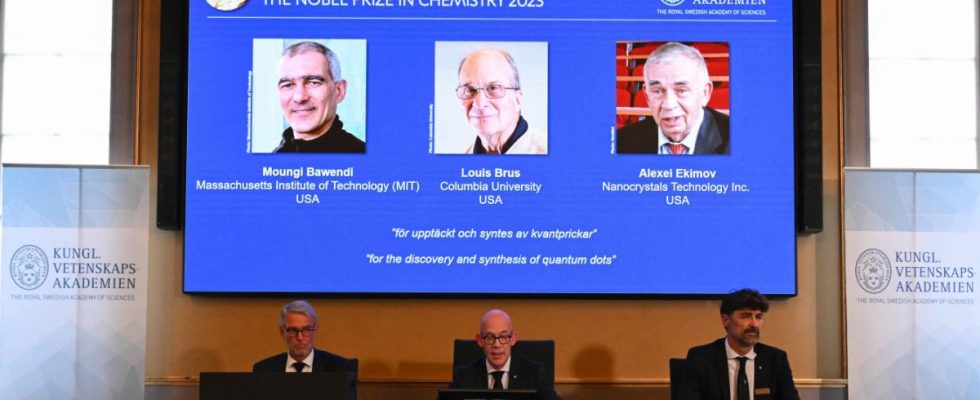The circumstances surrounding how the winners of this year’s Nobel Prize in Chemistry were announced were even more exciting this year than the names of the winners themselves. The prize winners were only officially announced as planned in a press conference at 11:45 a.m., but were announced in the early hours of the morning several Swedish media reported that they had received an email from the press office of the Royal Swedish Academy – with the names of the three winners, all of whom do research in the USA. A few hours of guesswork followed: a real leak or a hoax? By 11:46 a.m. it was actually clear that someone in the press office had pressed the send button too early and had sent the email with the highly confidential content to the editorial offices of country.
In fact, the Nobel Prize in Chemistry this year goes to the three scientists already mentioned in the morning email, Moungi Bawendi, Louis Brus and Alexei Ekimov, for their discoveries around quantum dots, as the Royal Swedish Academy of Sciences in Stockholm finally announced in its press conference. The structures are also known as artificial atoms and are now used in modern televisions, among other things, and could one day be important for quantum computers.
At least Moungi Bawendi had not noticed anything about the hustle and bustle surrounding the premature announcement. All three scientists work in the USA – and are therefore many hours behind European time. No, he had not received any inquiries in the past few hours, Bawendi said when asked by a journalist during the press conference. The first call on this matter apparently came from the Royal Swedish Academy, as planned.
The winners in medicine and physics had already been announced this week without a hitch. This year, the Nobel Prizes are endowed with eleven million Swedish crowns (around 950,000 euros) per category. That is one million crowns more than in previous years. If several laureates receive a Nobel Prize together – for example because they have researched the same topic – then they share the prize money. The Nobel Prizes are presented on December 10th, the anniversary of the death of the dynamite inventor and prize donor Alfred Nobel.
Last year, the Americans Barry Sharpless and Carolyn Bertozzi and the Dane Morten Meldal received the Nobel Prize in Chemistry. The three researchers were honored for the development of methods for the targeted construction of molecules.

